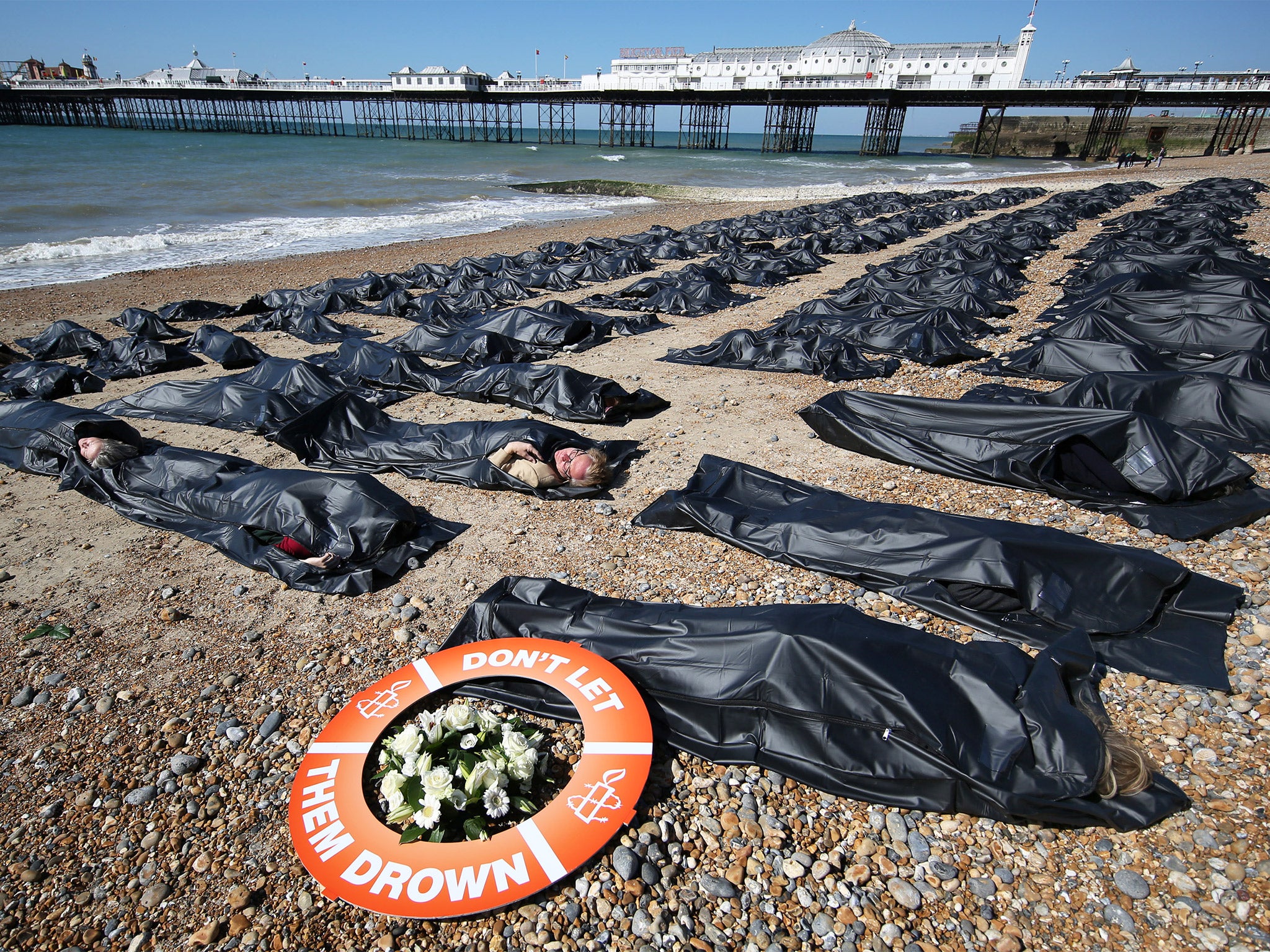Migrant crisis: EU ministers to discuss U-turn on search-and-rescue operations in Mediterranean
Plans to try and capture or destroy people-smuggling boats will also be considered

Your support helps us to tell the story
From reproductive rights to climate change to Big Tech, The Independent is on the ground when the story is developing. Whether it's investigating the financials of Elon Musk's pro-Trump PAC or producing our latest documentary, 'The A Word', which shines a light on the American women fighting for reproductive rights, we know how important it is to parse out the facts from the messaging.
At such a critical moment in US history, we need reporters on the ground. Your donation allows us to keep sending journalists to speak to both sides of the story.
The Independent is trusted by Americans across the entire political spectrum. And unlike many other quality news outlets, we choose not to lock Americans out of our reporting and analysis with paywalls. We believe quality journalism should be available to everyone, paid for by those who can afford it.
Your support makes all the difference.It was a cheap mistake that cost hundreds of lives. Now, EU ministers have an opportunity to rectify it by investing in search-and-rescue operations in the Mediterranean.
That mistake, in the view of governments, aid groups and experts, was to scrap the EU’s migrant rescue mission for a cut-price alternative. In the face of an unprecedented swell of public opinion, the heads of EU members states may decide to reinstate patrols in the Mediterranean to prevent a repeat of the tragedy in which more than 800 migrants drowned at the weekend.
EU leaders will also discuss ideas including trying to capture or destroy people-smuggling boats. New data from the Italian Directorate of Immigration shows that Italian authorities have managed to destroy or seize boats in just one in four encounters with traffickers, while in most cases the smugglers escape with their vessel and reuse it.
The Italian interior minister, Angelino Alfano, has talked about bombing the smugglers’ boats. But the Italian government says a united EU front is needed. Refugee groups are opposed, citing legal, logistical, safety and even environmental concerns.
In an open letter, signatories including Chris Patten, the former EU Commissioner, and Massimo D’Alema, the former Italian Prime Minister, described the spiralling death rate as “a stain on the conscience of our continent”, which by some estimates may increase to 30,000 this year. Justin Forsyth, chief executive of Save the Children, welcomed the support of the European establishment, and said: “It’s quite simple: EU leaders must decide to immediately restart the rescue within 48 hours on at least the scale of 2014. Dithering further will mean that more children will drown in horrific circumstances, alone, terrified and in the hold of a capsizing boat.”
Privately, campaigners said the pressure for boosting rescue capability was becoming hard for EU leaders to resist, with even Britain signalling a U-turn.
“We’re very happy that the British government is now talking about search-and-rescue,” said Brendan Cox, Save The Children’s policy director, following Prime Minister David Cameron’s admission that withdrawing such services had been a mistake. “The big question is how quickly will Europe reinstate them,” said Mr Cox. “We can’t wait for weeks or months. There are migrants at sea now.”

Italian navy chiefs have said their vessels would be ready to restart search-and-rescue within 48 hours.
“Any hope that we have of grasping back the credibility of this region, and human rights, lies in those decisions on Thursday,” said Amnesty International’s European Institutions spokeswoman, Iverna McGowan. Amnesty is also calling on the EU to increase resettlement quotas.
A commitment earlier this week by the EU to double spending on Triton, the maritime border protection service, which was supposed to replace Italy’s Mare Nostrum operation, was dismissed by refugee organisations. “This is utterly insufficient,” said a spokesman for Save the Children. “Triton is about border control.”
Another NGO warned of another reason why death rates were rising. “The boats are getting more clapped out and more packed at the same time,” Flavio di Giacomo, a spokesman for the International Organisation for Migration, told AFP.
Join our commenting forum
Join thought-provoking conversations, follow other Independent readers and see their replies
Comments